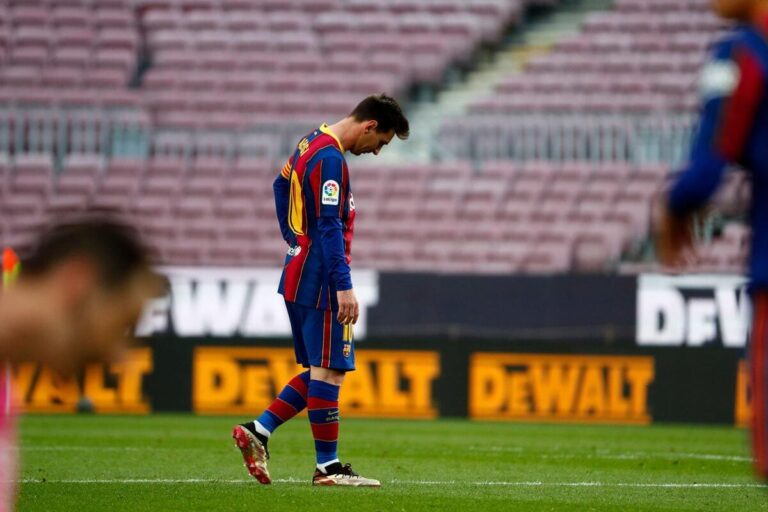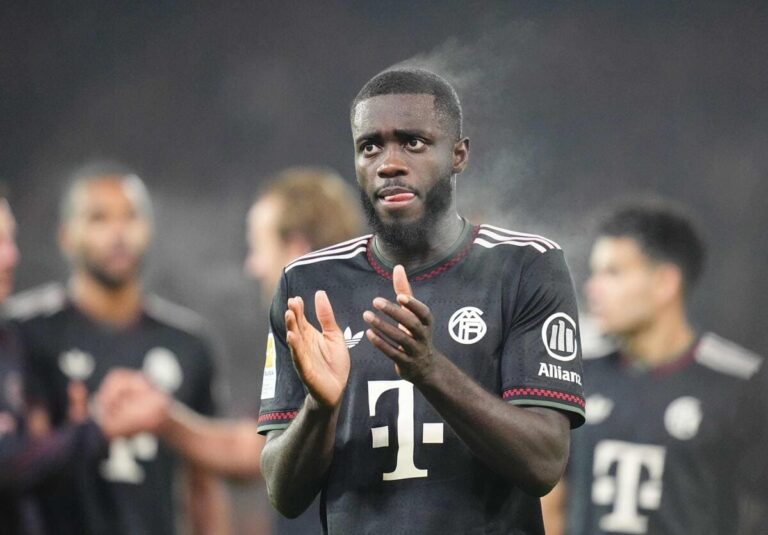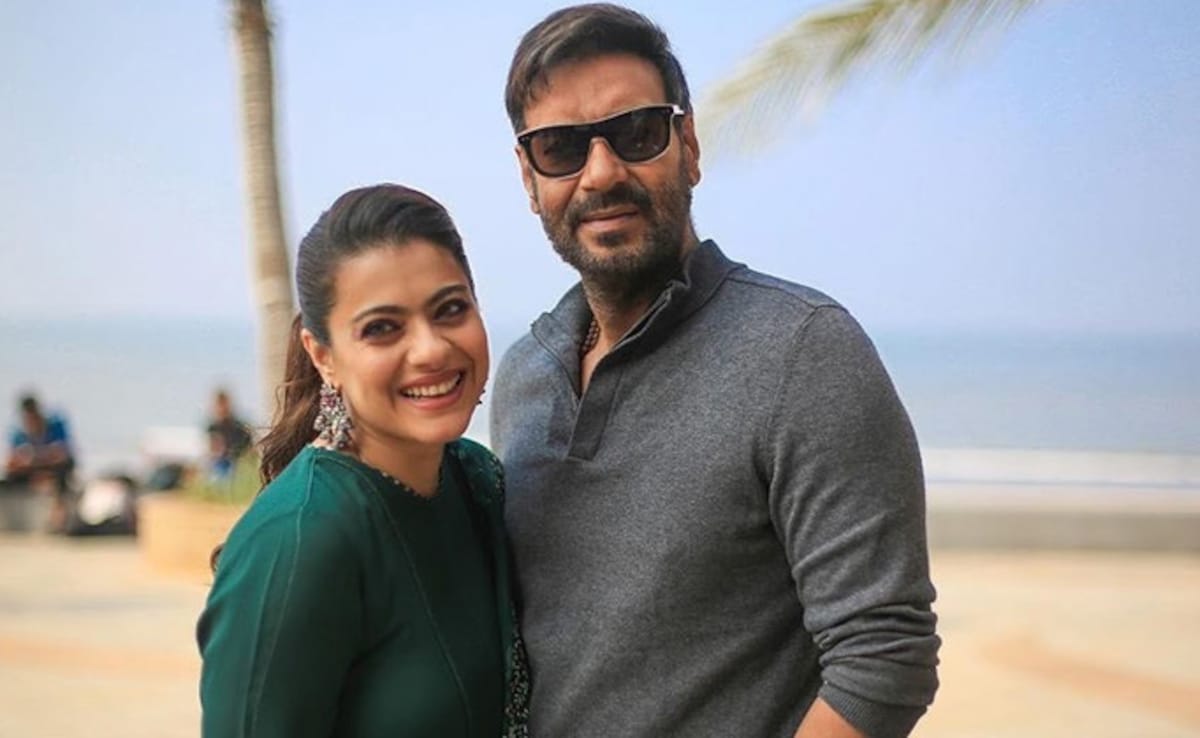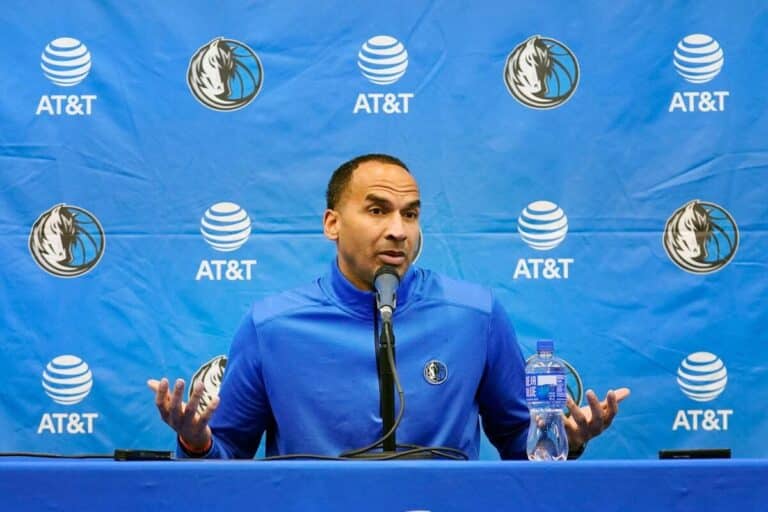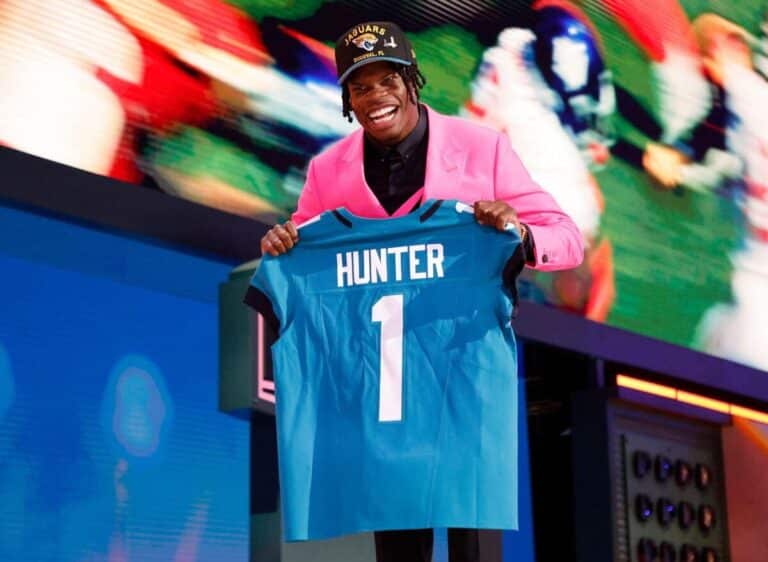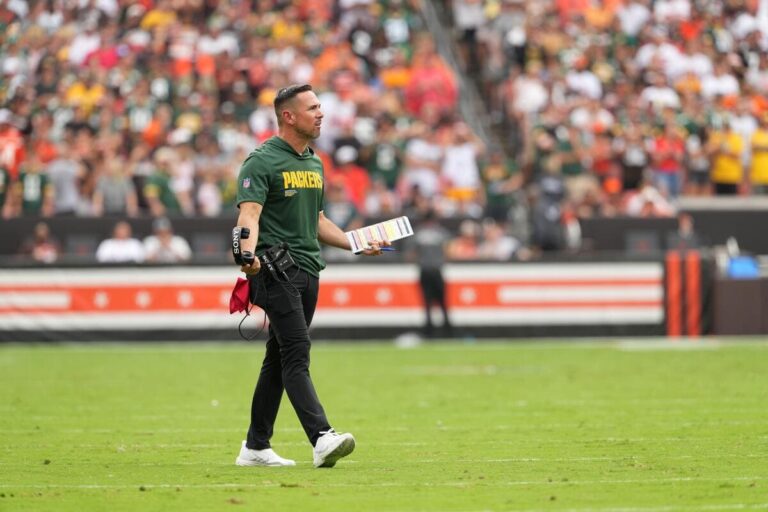Liverpool: ‘Not unreasonable’ to disallow Van Dijk goal, says referee’s chief Webb
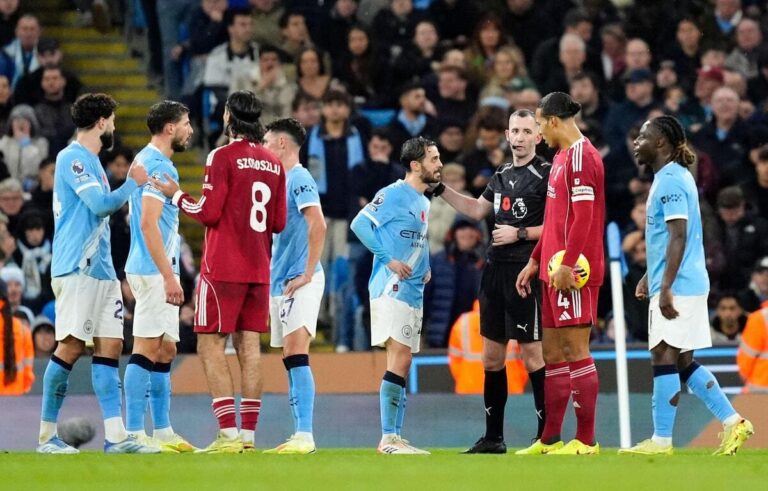
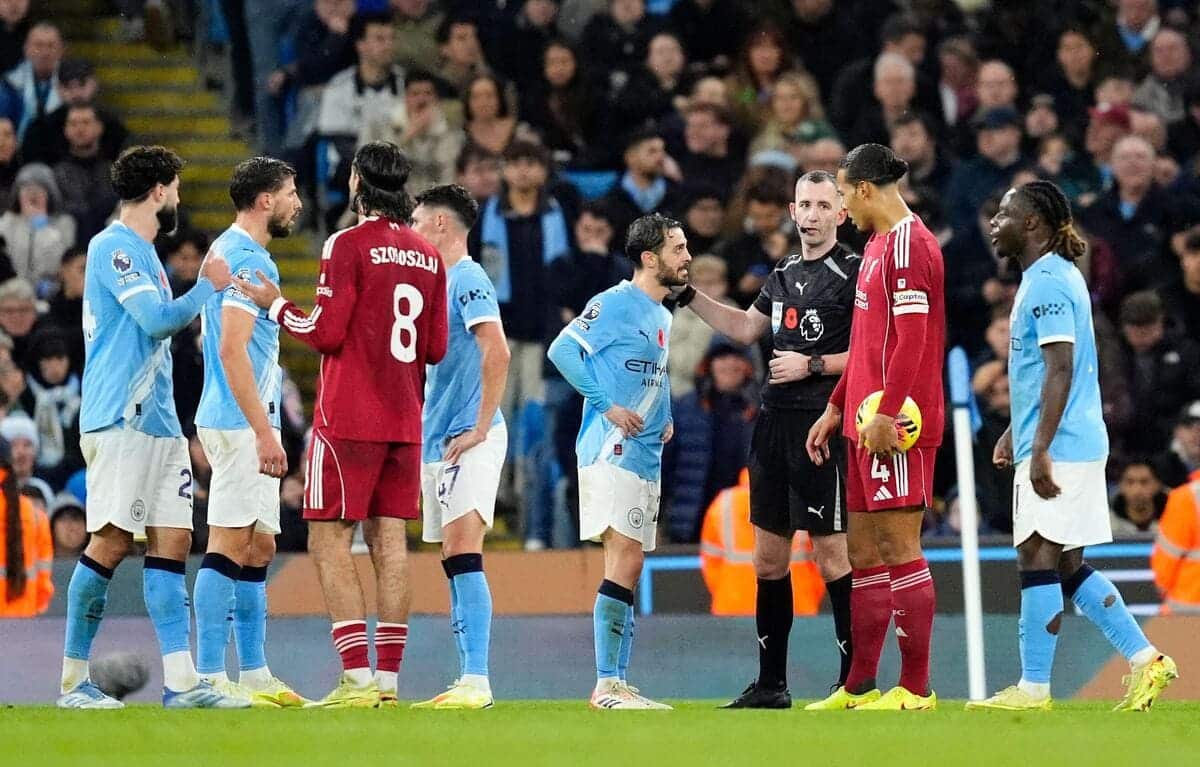
Liverpool were left fuming after Virgil van Dijk's goal against Manchester City was disallowed, but Howard Webb defended the decision.
Howard Webb understands Liverpool’s anger at Virgil van Dijk’s disallowed goal against Manchester City, but believes it was “not unreasonable” for the effort to be chalked off.
The Reds appeared to have equalised nine minutes after Erling Haaland’s 29th-minute opener when Van Dijk headed in from a Mohamed Salah corner.
However, the goal was ruled out after referee Chris Kavanagh and assistant Stuart Burt ruled Andrew Robertson had committed an offside offence by ducking under the flight of the ball, deeming he had hindered Gianluigi Donnarumma’s efforts to make the save.
A VAR check confirmed the on-field decision, and City subsequently cruised to a comfortable win thanks to goals from Nico Gonzalez and the excellent Jeremy Doku.
The result moved City within four points of Premier League leaders Arsenal, but left defending champions Liverpool eight off the pace.
Liverpool subsequently complained to Webb regarding the decision, raising “serious concerns” while telling the Professional Game Match Officials Limited’s (PGMOL) chief refereeing officer that they do not believe it was made subjectively.
Webb, though, has taken the opposite view.
Webb responds to Liverpool argument
Speaking on the ‘Match Officials Mic’d Up show’, Webb stressed that he understands why Liverpool believe the goal should have stood.
On the other hand, he insisted that such calls are very subjective ones for match officials.
“Interfering with an opponent where the offside position player doesn’t play the ball and the officials have to make a judgment whether the actions of that player impact an opponent, are some of the most subjective decisions that we have to make,” Webb said.
“Therefore, it’s no surprise that some people believe this goal should have stood, so I think it’s important that we look at the facts of what actually happened in this situation.
“We know the corner comes in and the ball reaches Van Dijk. As the ball’s coming across the penalty area, the Manchester City players move out, they leave Robertson in that offside position in the heart of the six-yard box.
“When Van Dijk heads the ball forward, that’s the moment when we have to make an offside judgment about Robertson and about what he’s doing there.
“We know he doesn’t touch the ball but what does he do? Well, as the ball moves towards him, three yards out from goal, right in the middle of the six-yard box, he makes that clear action to duck below the ball.
“The ball goes just over his head, and the ball finds the goal in the half of the six-yard box where he is. Then, the officials have to make a judgment – did that clear action impact on Donnarumma, the goalkeeper, and his ability to save the ball? And that’s where the subjectivity comes into play.
“Obviously that’s the conclusion they drew on that. They looked at that position, they looked at that action, so close to the goalkeeper, and they formed that opinion.
“I know that’s not a view held by everybody but I think it’s not unreasonable to understand why they would form that conclusion.
“The player is so close to the goalkeeper, the ball’s coming right towards him and he has to duck to get out of the way of the ball – and they form the conclusion that that impacts Donnarumma’s ability just to dive towards the ball and make that save.
“And then, of course, once they’ve made that on-field decision, the job of the VAR is to look at that and decide, was the outcome of offside clearly and obviously wrong?
“Only Donnarumma truly knows if he was impacted by this and, of course, we have to look at the factual evidence, and when we see that factual evidence of that position of the player ducking below the ball, so close to the goalkeeper, the VAR determines that the outcome of offside is not clearly and obviously wrong, and they stay out of it.”
What's Your Reaction?
 Like
0
Like
0
 Dislike
0
Dislike
0
 Love
0
Love
0
 Funny
0
Funny
0
 Angry
0
Angry
0
 Sad
0
Sad
0
 Wow
0
Wow
0






